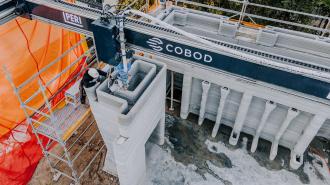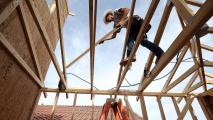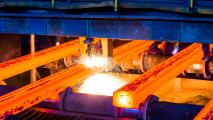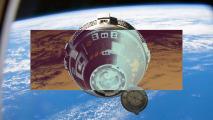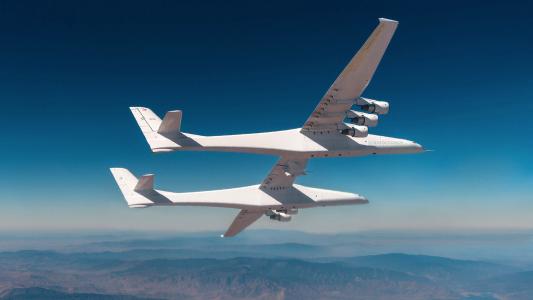Engineers are building the US’s first two-story 3D-printed house in Houston, Texas — illustrating the design diversity of the burgeoning construction technique.
The challenge: Compared to traditional construction methods, 3D printing houses could be cheaper, faster, and require fewer laborers, suggesting that it could play a role in helping the US address a housing crisis fueled by worker shortages and rising material costs.
“There are structural challenges, logistic challenges when we print a second-story building.”
Leslie Lok
Traditional construction still has a leg up on 3D printing when it comes to building multi-story homes, though — while a few have been constructed internationally, no one has built a two-story 3D-printed house in the US yet.
“One of the things about printing a second story is you require, you know, the machine … And of course, there are other challenges — structural challenges, logistic challenges — when we print a second-story building,” Leslie Lok, co-founder of design studio Hannah, told Reuters.
What new? Hannah has decided to tackle those challenges with its partners Cive, a Houston-based engineering company, and Peri 3D Construction, a German firm that has 3D-printed multi-story buildings overseas.
“It’s not about printing concrete everywhere because you could, but where it makes sense.”
Sasa Zivkovic
The group began constructing their two-story 3D-printed house in Houston in July 2022. Printing the three-bedroom home is expected to take a total of 330 hours, and the team is currently halfway through the process, according to Hikmat Zerbe, Cive’s head of structural engineering.
“We are not trying to beat the clock,” he told NPR. “It’s a case study. We’re learning the capabilities of the machine, learning the reaction of the material under different weather conditions. We’re learning how to optimize the speed of printing.”
Hybrid house: The height of the building isn’t its only unique characteristic — rather than relying solely on concrete to build the walls of the 4,000-square-foot house, Hannah opted to integrate wood into the construction process.
“[T]he printed concrete and the wood framing work hand in hand and we use them where they’re best performing,” Sasa Zivkovic, co-founder of Hannah, told Architizer. “It’s not about printing concrete everywhere because you could, but where it makes sense.”
Looking ahead: Once construction wraps up, the two-story 3D-printed house will be sold to a family that has chosen to remain anonymous. Hannah and its partners hope to then take what they’ve learned from the process to build other multi-story homes — but faster.
“When this project is completed, we should have a very good idea how to proceed in the future,” said Zerbe.
We’d love to hear from you! If you have a comment about this article or if you have a tip for a future Freethink story, please email us at [email protected].
